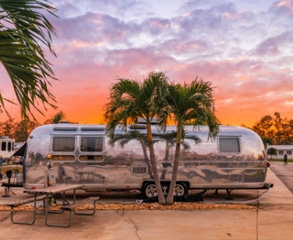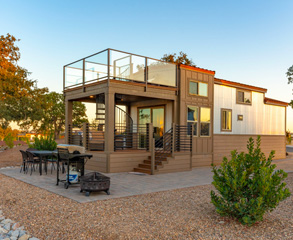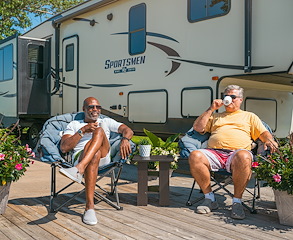Choosing Between Motorhomes and Towable RVs: Pros and Cons
Buying a motorhome or RV is a significant decision that involves considering various factors like family size, towing capabilities, budget, and lifestyle preferences. As modern travelers explore their options, it's essential to find the RV style that best fits their needs. In this guide, we'll help you navigate the decision-making process by highlighting the pros and cons of the two major RV categories: motorized units and towable units.
Pros and Cons of Motorized Units
Pros of Motorized Units
- Ease of Movement: Motorhomes are generally easier to move and set up, allowing for quick getaways.
- Towing Capability: They can tow vehicles, providing a convenient way to get around at your destination.
- Self-Leveling Jacks: Many motorhomes come with self-leveling jacks, eliminating the hassle of stacking blocks.
- In-Transit Comfort: Non-drivers can engage in activities like reading or playing games while on the road.
- Accessibility: You have an easily accessible bathroom, kitchen, and living space without needing to go outside.
- Weather Protection: You don't have to venture out into bad weather to access the unit when you stop.
Cons of Motorized Units
- Towing Limitations: When towing, you cannot back up, and you must consider the cost and maintenance of the towed vehicle.
- Repair Logistics: If repairs are needed, the entire unit must go to the shop, and you may need alternative accommodations.
- Depreciation Rate: Motorhomes tend to depreciate faster due to their high initial investment.
- Higher Costs: They are generally more expensive than towable RVs, even when factoring in the cost of a vehicle to tow.
- Less Living Space: Motorhomes typically offer less living space compared to travel trailers and fifth wheels.
Pros and Cons of Towable Units
Pros of Towable Units
- Exploration Flexibility: You can leave the RV and use your towing vehicle to explore your destination.
- Cost-Effective: Towable units are usually less expensive and retain their value better than motorhomes.
- More Living Space: Many towable RVs offer more living space, making them ideal for larger families.
- Independent Repairs: It's often just the towing vehicle that needs repairs, allowing you to continue living in the RV.
Cons of Towable Units
- Hitching Challenges: Towing and unhitching large trailers can be difficult and time-consuming.
- Campsite Limitations: The combined length of the towing vehicle and trailer can make finding suitable campsites a challenge.
- Safety Regulations: Non-drivers cannot legally be in the towed trailer while it's moving.
- Vehicle Costs: Depending on the size of the towable RV, the towing vehicle can be more expensive than the RV itself.
- Comfort Issues: Exploring the destination may be less comfortable in a truck used for towing than in a motorhome.
- Loan Differences: The tow vehicle loan cannot be spread over a long term like RV loans, resulting in potentially higher monthly payments.
Making the Right Choice
Whether you choose a motorized unit or a towable unit, purchasing an RV is a big decision and a significant financial investment. A great way to make informed comparisons is by attending an RV trade show. These events showcase various makes and models, and you can interact with representatives from manufacturers, dealers, and maintenance companies who can answer your questions and provide valuable insights.
Conclusion
Take the time to weigh the pros and cons of each RV type to find the perfect fit for your travel lifestyle. Your adventure awaits!
Related Posts









